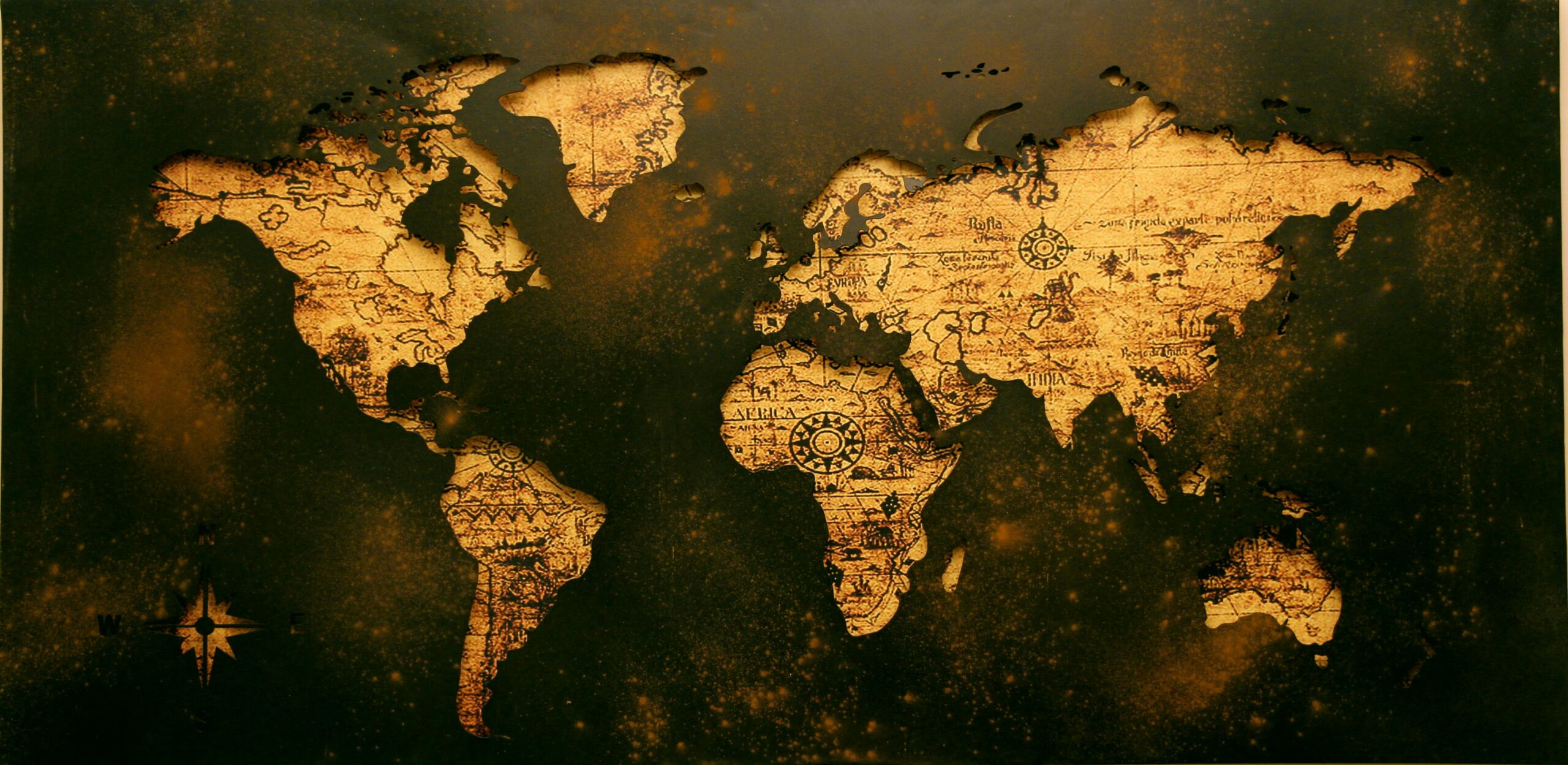Bosnia and Herzegovina has been a crisis hotspot for about thirty years. The country has neither consolidated nor made any significant progress since the end of the war in late 1995 and the signing of the Dayton Peace Agreement. Representatives of the three constituent peoples cannot reach a consensus on any important issue, and the poor situation is further complicated by foreigners who, through the Office of the High Representative for Bosnia and Herzegovina (OHR), additionally undermine interethnic relations. Today, BiH is a stronghold of poverty, crime, corruption, clientelism, and the national question remains unresolved.
We spoke with Bruno Penava, Master of Electrical Engineering and Information Technology, about the current situation in BiH and its future. Penava is the President of the Epsilon Association and the creator of the project “Academy on Bosnia and Herzegovina,” which involves more than 100 young people from Croatia, BiH, and the diaspora. He occasionally engages in political consulting in Croatia. He is socially active through numerous projects, lectures, panels, and activities.
– Do you think Bosnia and Herzegovina is an important country in the global sense?
It is a crisis hotspot like Ukraine, Syria, the Holy Land, or North Korea — places that can always explode. However, after the end of the war in 1995, Bosnia slowly but surely fell into oblivion on the global stage. Today, the average citizen of the world in the USA, China, or Western Europe probably knows nothing or very little about BiH.
Bosnia and Herzegovina is not globally important because it lacks political, military, and economic power. After the war ended in 1995, BiH became a kind of protectorate of the international community, but without a clear strategy for long-term stabilization. The result of all this is today’s deeply dysfunctional state that was “frozen” instead of reformed.
Although it is not currently in the focus of the world media like Ukraine or Palestine, BiH is constantly in a political and social crisis. Most of its citizens do not want conflict, and I believe it will not happen, but the political system — based on an unnatural balance agreed upon in Dayton, which was later undermined — continuously produces instability.
The average citizen in the USA, China, or Western Europe knows very little or nothing about BiH. International actors, who largely created this system, have no interest in reopening the question of BiH because that would mean admitting their own mistakes and would require decisive and concrete actions to “correct” those mistakes.
– Can we even call BiH a state today? It is an international protectorate where the Office of the High Representative (OHR) has dictatorial powers, a third of the Constitutional Court judges are foreigners, and there is EUFOR in BiH…
Nominally, BiH is a state, but essentially it is not. A state implies a minimum of sovereignty, institutional stability, and democratic legitimacy of power. BiH has none of that. The OHR practically has dictatorial powers that no other country in Europe tolerates, and foreign judges sit on the Constitutional Court deciding on matters that go to the very core of the state’s organization.
A particular problem is the fact that the foreign ruling structure lacks democratic legitimacy but has unlimited executive power, without any control mechanism.
If we want BiH to truly function as a state, then this protectorate must end, and power must be returned to institutions, respecting the equality of the three constituent peoples. That would be an act of “constitutional patriotism” that many swear by, even though at the same time they call on foreigners to decide their fate.
– Does BiH have a future in its current post-Dayton form? I say “post-Dayton,” as do you, because the OHR at the beginning of the 2000s greatly altered the political-legal framework of the Dayton and Washington agreements. In any case, the concept of two entities and three constituent peoples has not proven effective—not only in (inter)ethnic matters but also in practical issues. More than a million people in BiH live in poverty; the country is a hotbed of corruption and a hub for organized international crime, including human trafficking and drug smuggling. In my opinion, the political framework in which BiH exists is to blame for all of this. It is the generator of all these problems. Do you agree?
This current post-Dayton Bosnia and Herzegovina has no sustainable future. The Dayton Agreement stopped the war, but everything that happened afterward, especially from the early 2000s onward, has led to BiH not functioning either as a state or as a society. The OHR, through its interventions, systematically undermined the principles of the Dayton-Paris Agreement, which created a permanent state of political dysfunction.
The result is a society in which many people do not live well and where corruption and clientelism are not exceptions but the rule. All of this stems from a political framework that does not generate accountability but rather postponements and excuses.
Therefore, I fully agree that the political framework is the main cause of the problems. Unless there is a thorough reconstruction of the system—that means a return to the fundamental principles agreed upon in the Washington and Dayton agreements—BiH will remain a place without any real chance for progress.
– Why is Bosnia and Herzegovina important for Croatia? At first glance, there is the question of the Croatian people in BiH, the transport and economic orientation of the two countries toward each other, but many other factors as well.
Bosnia and Herzegovina is strategically important for Croatia for several key reasons.
First, because of the Croatian people, who in BiH are not a diaspora but an autochthonous and constituent people. BiH is, was, and will be the land of the Croatian people as well. Stability, equality, and political representation of Croats in BiH directly affect Croatian national security. Croatia cannot be truly stable while Croats in BiH are disenfranchised. Just look at the geopolitical and geostrategic connection between the two countries (a thousand kilometers of border, BiH as the “soft underbelly” of Croatia, Croatia’s narrowing to the south), and it will be entirely clear to you that it is in the highest interest of the Republic of Croatia that decisions in Sarajevo are not made without Croatian hands.
Second, because of economic and transport connections. Croatia and BiH are mutually dependent on each other—through trade, labor force, and energy systems. One of the few countries with which the Republic of Croatia has a significant economic surplus is precisely BiH, and destabilization of BiH also means a blow to Croatian economic interests.
Third, because BiH represents a security challenge right on the border of the EU and NATO. If BiH is politically and institutionally dysfunctional, it will in the long term jeopardize Croatia’s position within the Euro-Atlantic area.
That is why BiH is not just a foreign policy issue for Croatia but also a domestic political topic of paramount importance.
– Do you agree that the question of BiH is one of the issues in Croatia where there is the greatest freedom of opinion? Mao Zedong’s saying, “Let a hundred flowers bloom,” is most visible in the attitude towards BiH. Personally, I have witnessed numerous public forums and various discussions, and rarely have I seen such a wealth of viewpoints. There has never been a consensus in Croatia since the early 1990s until today about what Bosnia should be like. Some advocate for three entities, some for cantonization, some for abolishing the state, while others think Croatia should have nothing to do with BiH. This is a phenomenon that is rarely discussed.
From the 1990s until today, we have heard various proposals—from three entities or republics, to cantonization, to ideas that Croatia should have no political interest whatsoever in BiH. Certainly, the most common and logical stance has been that the structure of BiH must emerge from an agreement among the legitimate representatives of the three peoples in that country.
Despite everything, what is encouraging today is the fact that within political parties in Croatia there is increasing consensus about the position of Croats in BiH—and this is a sign of political maturity. It is becoming clearer that the position of Croats in BiH is not a matter of party squabbling but a question of national responsibility. Except for some ideologically entrenched groups and political sectarians, most parties clearly support the equality of Croats in Bosnia and the Euro-Atlantic path of that country. There are issues where there must be no divisions between “left,” “right,” “liberals,” or “conservatives,” but where we must look exclusively at the national interest—and the Croatian question in BiH is one of those issues.
– How to solve the Croatian question in BiH? Is the solution a third, i.e., Croatian entity? Is such a solution even feasible in the foreseeable future? Today, all centers of power in the world reject it.
The first thing to say is that there is no perfect solution that will satisfy all parties. The third entity is not ideal, but it would certainly be a better and fairer solution than what we have today.
It is important to note that the third entity is not an extreme idea—on the contrary, it is fully in line with the nature of BiH, with the fact that there are three constituent peoples, but also with international plans to end the war. Thus, the idea of a decentralized, complex BiH with clear powers for the entities is not a Croatian fixation—it has been and remains the fundamental logic of every serious peace proposal.
Today, this idea is marginalized because of geopolitical calculations, the inertia of the international community, and fear of “precedents.” Croats in BiH do not have the possibility of political self-expression, and this must be resolved—either by creating new entities or by the consistent implementation of the consociational model.
If the international community sincerely wants a stable and sustainable BiH, then it must be ready to reopen the question of structural organization—and this implies realistically considering the third, fourth, fifth, or even tenth entity as a legitimate solution.
– If the Croatian entity is not feasible, could the solution be a complete restructuring of BiH based on federalist principles? In my opinion, Bosnia and Herzegovina should be rebuilt from scratch because the existing political system is broken, like a broken car. No matter how much you try to fix it, it cannot be fundamentally repaired. Therefore, it would be better to start from the basics. Keep the external borders and constituent peoples, abolish the entities—the Federation of Bosnia and Herzegovina and Republika Srpska—and build the rest anew. The state could be organized according to the principle of 8-12 national and multiethnic (mega) cantons or provinces with significant powers, with clearly defined parity in the federal government, parliament, and also the right of veto in the House of Peoples or a similar institution. This would be a mix of territorial and consociational principles.
There are many proposals and theoretical solutions, and many of them I would personally support, but the political reality is such that it is unlikely that any of this will be implemented. I believe Croats would accept the option with ten cantons, or three, four, or five entities, the consociational model, or any other proposal that would grant them full equality. Unfortunately, Bosniak politicians do not want to give up the idea of a unitary state in which they would absolutely dominate. Just as Serb politicians do not want to give up Republika Srpska.
Federalism is certainly the most sensible solution for BiH—whether territorial or institutional. The current political system of BiH is really like a broken car: patched up, dysfunctional, and irreparable in its essence. No matter how much it is “serviced” with cosmetic measures, the fundamental architecture does not deliver results. Therefore, it is necessary to think from the ground up. Unfortunately, many are not ready for this change, and that is the main problem.
The key is finally to implement the rulings of the Constitutional Court of BiH and international courts, which demand precisely institutional equality, legitimate political representation at all levels, and the right of everyone to vote and be elected. As long as Croats in BiH cannot elect their member of the Presidency, or as long as another people chooses their representatives, BiH will be neither a just nor a sustainable state. If all these issues were resolved, it would be less important how many federal units there would be and how the electoral process would be organized. But all of this requires a level of compromise, statesmanship, vision, and courage, which is currently lacking in BiH.
– Which of the great powers could constructively help finally resolve the Bosnian question? Could it be the United States, China, or someone else?
The Americans have turned BiH into a permanent crisis hotspot; if they wanted to, they could also close it down since the USA itself is excellently organized on federalist principles. If the Americans had wanted to build a quality Bosnian-Herzegovinian state, they certainly would have done so. Obviously, their interest was something else.
The US still holds key levers — political, diplomatic, and security-related. But the question is whether there is the will, interest, and strategic clarity. The European Union has proven to be weak, more bureaucratic than a political force. China has significant economic influence but not political influence, and Russia is too closely tied to the Serb political bloc to be an impartial actor.
Therefore, the most realistic scenario would be for the US — if it is to remain the guarantor of the Dayton Agreement — to take on the role of an active actor in its necessary upgrading. If they could create the state, they can also fix it. But only if there is political will to abandon the logic of maintaining the status quo and move towards real federalization of BiH.
Otherwise, BiH will remain an example of a state that the international community put together but never seriously tried to make sustainable.
– It is difficult to predict anything due to the high dynamism of geopolitics, but what do you think will happen in the coming years with BiH? Is the most likely scenario the preservation of the status quo, or will the Bosnia question finally become a global issue and perhaps be resolved? What option do you think has the best long-term chance of success — secessionist, unitarist, or federalist?
In the short term, unfortunately, the continuation of the status quo is the most likely. The international community currently lacks both the will and capacity to seriously engage with BiH. The main goal of the great powers is that Bosnia does not explode, not that it functions properly. Such a state of “controlled dysfunction” has lasted for decades and has proven politically profitable for those who manage the processes from abroad, as well as for local elites who survive precisely because of the crisis.
However, in the long run, no structure like this can last forever. BiH as it is will not survive indefinitely — the question is only whether the transformation will come through agreement or through a new crisis that could even lead to disintegration.
Of the three mentioned options — secessionist, unitarist, and federalist — the only one that has both political logic and historical sustainability is federalism. Secession by some and unitarism by others lead to conflict. Only federalism can offer a model of life without domination and fear — a model that respects real differences but places them within a framework of political cooperation.
Consistently implemented federalism emerges as the only realistic framework in which three constituent peoples can coexist, each with their own identity, but within a common state structure. If BiH wants to be saved in the future, federalism — in some form — will be the foundation of that renewal. If all sides do not finally recognize and accept this, the question remains whether BiH can survive as a state at all.
Interview conducted by Matija Šerić.








